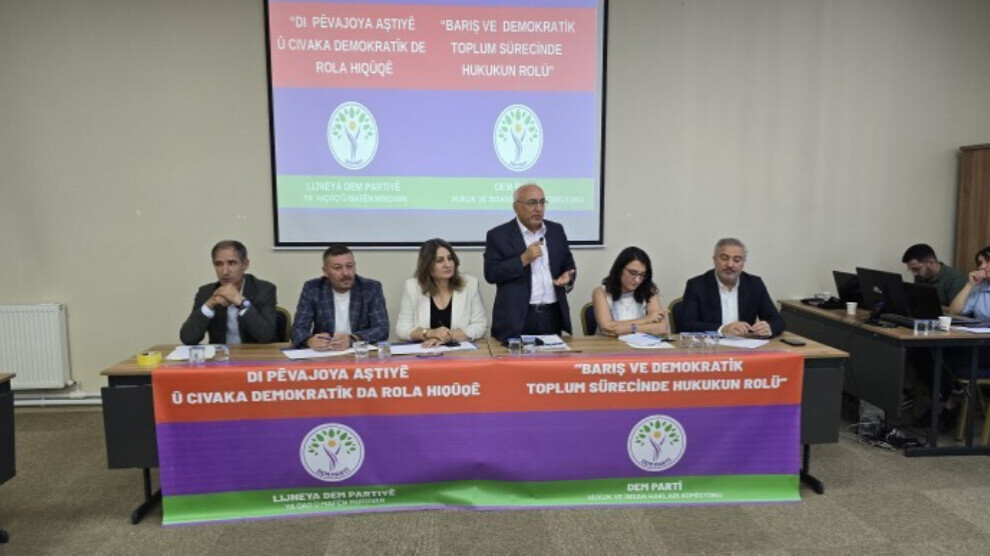DEM Party, bar associations, and lawyers meet in Van to talk about the “Process”
As part of its "Democratic Society Meetings," the DEM Party met in Van with bar association presidents, legal organizations, and lawyers.
As part of its "Democratic Society Meetings," the DEM Party met in Van with bar association presidents, legal organizations, and lawyers.

The DEM Party met in Van with bar association presidents, legal organizations, and lawyers in a new "Democratic Society" meeting. The meeting was attended by Öztürk Türkdoğan, DEM Party Deputy Co-Chair responsible for the Legal and Human Rights Commission; Commission Co-Spokesperson Sevda Çelik Özbingöl; and numerous legal professionals and civil society representatives.
Opening the meeting, Sevda Çelik Özbingöl emphasized that the process is not only political but also has a significant legal dimension, stating that peace can only be achieved with the participation of all components of society.
Sevda Çelik said: "The legal aspect of this process is very important, and everyone should contribute to it. Peace comes through collective effort and the involvement of all segments of society."
DEM Party Deputy Co-Chair Öztürk Türkdoğan stressed that the call made by Önder Apo on February 27 carries historical significance.
Recalling that resolution initiatives that began in 1993 reached a serious phase during 2013–2015 but were interrupted due to regional developments, Türkdoğan said: "This time, the process is a necessity, and to bring this necessity to life, Mr. Öcalan has taken on a historically significant responsibility."
Türkdoğan underscored that the issue of disarmament was not a matter of negotiation, but a process put on the agenda by Mr. Öcalan of his own volition, and said that legal steps are needed for the process to succeed.
Noting that the 10th Judicial Package did not meet expectations, Türkdoğan stated that concrete legal regulations must be enacted to address issues such as sick prisoners, injustices in sentencing practices, and discriminatory measures targeting disadvantaged groups.
Türkdoğan further stated that constitutional changes are necessary to solve the Kurdish question: "The Kurdish issue is enormous and has seen 50 years of conflict. Therefore, we are talking about a situation that requires changing all laws and the constitution. There must be efforts to transition from a monolithic system to a pluralistic one. In this process, Mr. Öcalan is the chief negotiator and is personally leading the process."
After the speeches, the meeting continued behind closed doors. The discussions addressed the legal foundations of the resolution process, the role of bar associations, and the need for constitutional reform in detail.